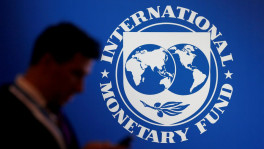EU wants Bangladesh to quickly amend EPZ Labour Act

The European Union (EU) has urged Bangladesh to quickly amend the EPZ Labour Act for Bangladesh to retain the Everything but Arms (EBA) facility, which allows duty-free and quota-free access to the EU market.
Bangladesh enacted a new law for the export processing zones in 2019. Currently a draft of a set of rules based on the law is at the law ministry for vetting. Bangladesh wants to formulate a new law once the new rules are in effect.
However, a letter, jointly signed by EU's Director General of Trade Ewa Synowiec, Director General of Employment Jordi Curell and Deputy Managing Director for Asia and Pacific Paola Pamaloni, said, "We would like to underline once again the importance of accelerating the date of amending the EPZ Labour Act, a key point expressly raised in the past years and in all our recent meetings in Dhaka."
Earlier, the government submitted to the European Union a roadmap for implementation of the EU's 9-point action plan given to Bangladesh by 2026, known as the National Action Plan (NAP). Although the plan called for amending the EPZ Labour Act by February 2023, the government objected to the introduction of trade unions.
"Waiting for the implementation of the EPZ Labour Rules is not needed. We therefore look forward to a concrete adjusted timeline for amending the EPZ Labour Act," said the three EU officials.
After the EU's EBA monitoring mission returned from a visit to Bangladesh in March, the EU said in a recent letter to Foreign Secretary Masud bin Momen, "Following the mission, essential concerns on the labour aspects remain, namely, to meet the commitments in the National Action Plan fully and on time."
In some areas, for such actions as amending the Bangladesh Labour Rules and the EPZ Labour Rules, the timelines have already passed for months. In others, Bangladesh has indicated that it may not meet the timelines as committed in the NAP, such as those on the deployment of all envisaged new labour inspectors.
The EU said it is key to addressing concerns in the area of freedom of expression, including in the digital space, and combating extrajudicial killings and torture and violence against women and marginalized groups.
It is also of great urgency that the European Parliament has been discussing the commission's proposal for a new GSP Regulation, including the vulnerability criteria for accessing the GSP+ arrangement, which the government of Bangladesh has already signalled it is interested in.
"We would like to reiterate that the duty free and quota free imports under the current EBA arrangement of GSP are conditional on compliance with international labour and human rights," added the officials.
The EU said, "We list some key points of the National Action Plan that we already raised during the mission. We recognise that these issues are complex, also against the background of the pandemic. Nevertheless, it is of paramount importance to be able to show also to our stakeholders- including the European Parliament and the 27 member states- that the commitments made by Bangladesh are being fulfilled on time.
"This timely fulfilment of the commitments in the National Action Plan has also been pointed out as being key by the committee on International Trade of the European Parliament in its session on 20 April 2022," they added.
Bangladesh Garment Manufacturers and Exporters Association (BGMEA) President Faruque Hassan told The Business Standard last Thursday that the timeline that the government gave the body to implement the action plan had not been fulfilled within that time.
"Now a new timeline is being given. I hope that all the work will be completed within that timeline," he said.
Regarding the amendment of the EPZ Labor Act, he said that the EU was talking about amending the Act by including issues like the introduction of trade unions. The government could not immediately take a decision on the issue due to objections from foreign investors in the EPZ. Hopefully, the government will take a decision through consulting stakeholders.
Asked whether the BGMEA has held any talks with the government on the implementation of the conditions imposed by the EU on human rights, Faruque Hassan said, "Everything does not happen immediately, it takes time. When it comes to making a decision, it has an impact on other sectors as well. The government is taking decisions on these issues thinking about the whole country. We are with the government and we will be with the government."
Mohammad Hatem, acting president of the Bangladesh Knitwear Manufacturers and Exporters Association, told TBS that a vested quarter is active in Bangladesh and the USA and is behind the EU's pressure on extrajudicial killings or human rights abuses.
"Bangladesh will have to make some changes in order to get the new GSP, otherwise we will have to suffer over duty-free access to Europe," he added.
A Commerce Ministry official, speaking on condition of anonymity, told TBS that although Bangladesh had expressed its desire to get GSP Plus from the EU for the past few years, the EU never said anything verbally or in writing. This is the first time that the EU has officially stated in a letter what Bangladesh needs to do since the country is interested in getting GSP Plus.
"We look at it positively. If the roadmap that the government has prepared in the National Action Plan can be implemented in time, it seems that it will be easier to get GSP after 2024 as well as GSP Plus benefits after LDC graduation," added the official.


 Keep updated, follow The Business Standard's Google news channel
Keep updated, follow The Business Standard's Google news channel
















